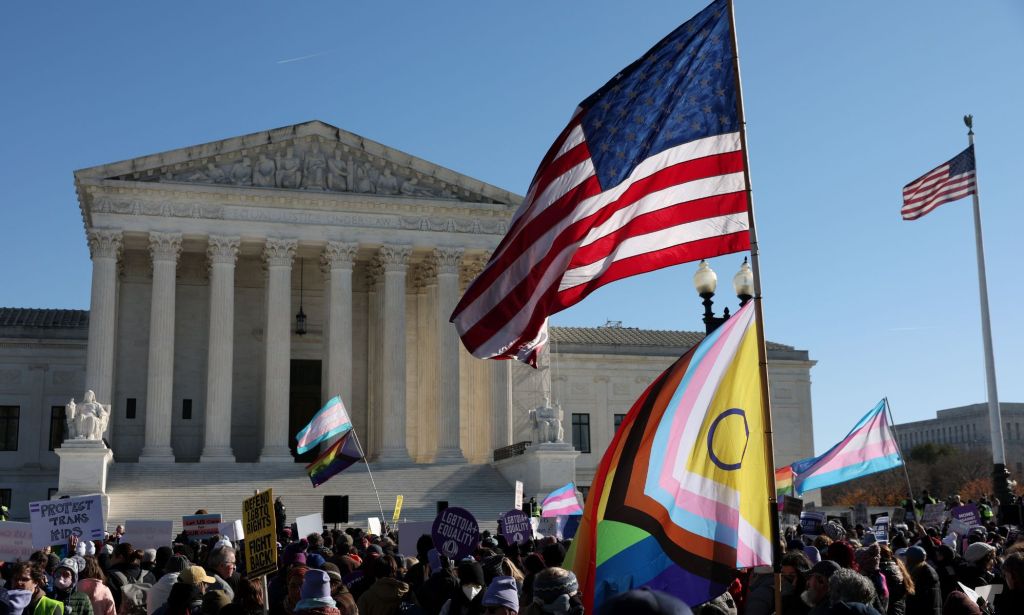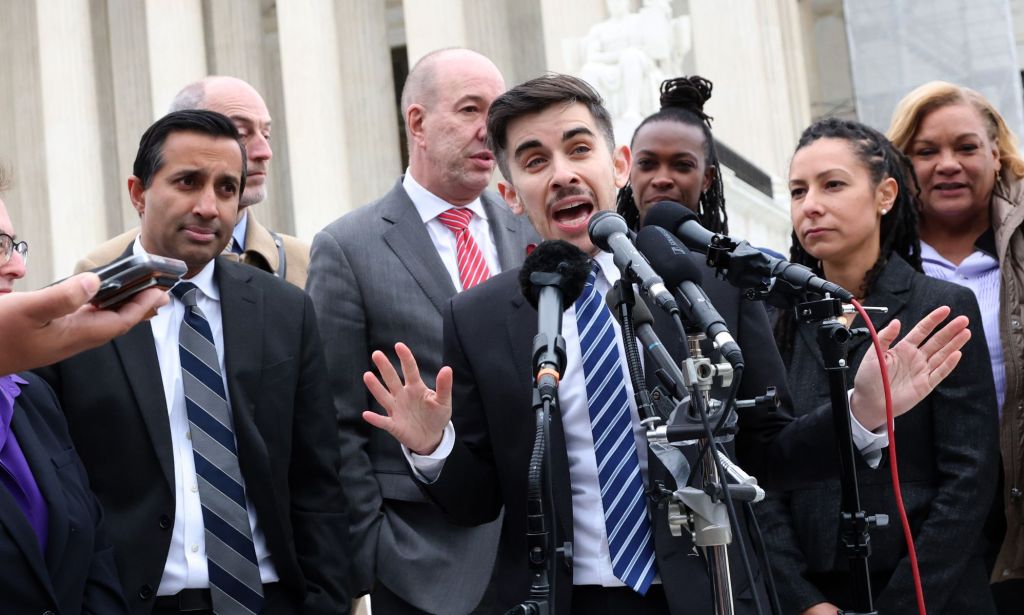 June 20 2025, 08:15
June 20 2025, 08:15 A US Supreme Court decision to uphold Tennessee’s ban on healthcare for transgender youngsters has been described as devastating for trans rights in the US, but what does it mean?
The justices voted on Wednesday (18 June) to allow the southern state to continue banning trans healthcare for under-18s in a 6-3 decision in the case of US vs Skrmetti. Sonia Sotomayor, Elena Kagan and Ketanji Brown Jackson – all liberal judges – dissented.
Chief justice John Roberts said the ban, which blocks trans youngsters access to puberty blockers and hormones, didn’t breach the 14th Amendment, which aims to prevent the passing of discriminatory laws.
“[The bill] prohibits healthcare providers from administering puberty blockers or hormones to minors to treat gender dysphoria, gender identity disorder or gender incongruence, regardless of the minor’s sex,” Roberts wrote. This meant it was not seen as discriminatory.

“Tennessee concluded that there is an ongoing debate among medical experts regarding the risks and benefits associated with administering puberty blockers and hormones to treat gender dysphoria, gender identity disorder and gender incongruence. [The] ban on such treatments responds directly to that uncertainty.”
The American Civil Liberties Union (ACLU), who brought the legal challenge alongside Lambda Legal on behalf of three teenagers, their parents and a doctor who provides transition medications, described the ruling as devastating. They had argued that the ban violated a constitutional guarantee of equal protection under the law by discriminating on the basis of sex.
The law also bans any procedure that enables “a minor to identify with, or live as, a purported identity inconsistent with the minor’s sex”.
Chase Strangio, a co-director of the ACLU’s LGBTQ+ & HIV Rights Project, said the ruling should be of concern to “everyone who cares about the constitution”.
While the ruling was a “painful setback,” he added, it did not leave trans people without a right to fight because “Supreme Court and lower court” rulings on other forms of trans discrimination had been left “undisturbed”.
Where does the Supreme Court ruling leave Americans?
While US vs Skrmetti specifically determined Tennessee’s gender-affirming care ban, the fact that it is a Supreme Court decision means it is likely to set a legal precedent for any future challenges to similar legislation in other states.
The case was brought last year after the Volunteer State appealed a state court decision which found the ban to be unlawful.
Tennessee’s ban is among thousands of anti-LGBTQ+ bills US states have tried to pass over the past few years. According to the ACLU, at least 597 anti-LGBTQ+ bills have been proposed in 2025 alone – 138 relate to healthcare restrictions.

Given that the court decided the ban did not discriminate against trans and non-binary people, any legal challenge to laws that prevent healthcare providers prescribing gender-affirming care elsewhere, including those already in effect, will be more difficult.
At least 27 states have laws banning healthcare for transgender youngsters, with 23 currently in effect.
The Human Rights Campaign found that more than 39 per cent of out trans teenagers, between the ages of 13 and 17, live in states where gender-affirming care bans have been passed. Oklahoma, Texas and South Carolina have considered banning healthcare for trans people up the age of 26.
The ACLU highlighted that the Supreme Court decision does not overwrite other rulings on discrimination through transgender status, meaning that other discriminatory laws, such as censorship or ID restrictions, won’t be affected.
Share your thoughts! Let us know in the comments below, and remember to keep the conversation respectful.
The post US vs Skrmetti: What will the impact of Supreme Court’s trans healthcare ruling be? appeared first on PinkNews | Latest lesbian, gay, bi and trans news | LGBTQ+ news.